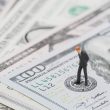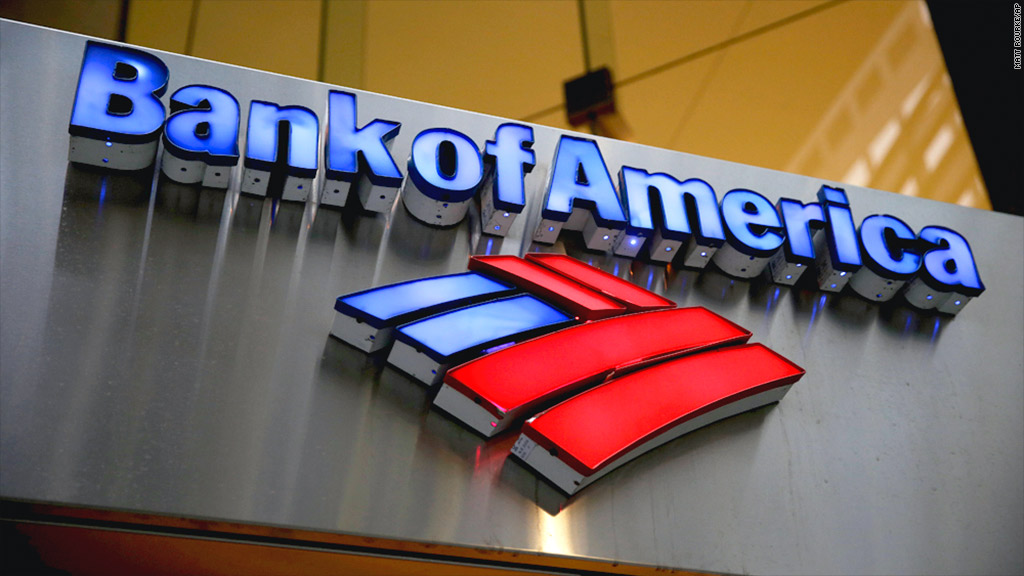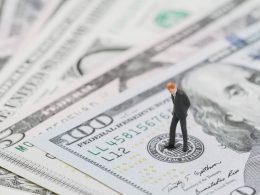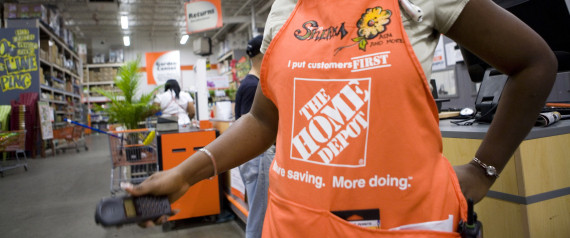Each week we read dozens of transcripts from earnings calls and presentations as part of our investment process. Below is a weekly post which contains some of the most important quotes about the economy and industry trends from those transcripts. Click here to receive these posts weekly via email.
Earnings season picked up its pace this week, and commentary was a bit stronger this week than last week. The first week of earnings is always filled with banks and most reported good results. Their performance is especially impressive given how difficult it is for financial services companies to operate in this low interest rate environment.
The election is also front of mind for many CEOs. Almost everyone expects that the end of the presidential race will lift a cloud of uncertainty over the economy. Whether or not the election will be a lasting catalyst though depends in large part on what the next President actually does. Either way, a new President will bring change, but perhaps one more than the other.
The Macro Outlook:
Segments of the economy are showing signs of life
“The macroeconomic environment still has its challenges…However, certain segments of the economy are showing signs of life.” —Union Pacific CEO Lance Fritz (Railroad)
The US consumer is generally pretty healthy
“US consumer health is generally good…charge-offs have receded. Other commercial credit remains very strong…We feel good about loan growth, the economy feels good.” —Bank of America CEO Brian Moynihan (Bank)
Healthcare spending was strong in September
“once September hit, the data showed quite a rebound from the summer months, and the rate of growth in September was actually faster than what we saw in the first quarter, which was the highest growth quarter year-over-year in terms of penetration….So overall, I’d say we’re now in a stable environment in hospital procedures.” —Johnson and Johnson CFO Dominic Caruso (Healthcare)
Banks were firing on all cylinders last quarter
“all of our businesses did really quite well this quarter. So, not to overuse the phrase, firing on all cylinders but it really was pretty consistent. ” —JP Morgan CFO Marianne Lake (Bank)
Commercial bankers see demand for loans
“I guess from speaking with our commercial bankers across the region before coming on the call, they are feeling good about the demand that’s out there. You know, as I mentioned before, our pipeline is very, very strong. It’s in line with what we’ve seen in prior quarters. I think there is a little bit of a pause and I expect there will be a pause this quarter, as we go through the election cycle and people digest what that means and with the change in administration.” —M&T Bank (Bank)
Capital markets activity is ready to pick back up
“So the pipeline feels pretty good when you talk our M&A team. And the backlog sequentially was up, not down…I mentioned before that…a meaningful portion of the year’s IPO volume actually occurred in September. So it does feel like we are starting now again into a market where a lot of that activity that got pushed from the first quarter into the second quarter that that still exists.” —Goldman Sachs CFO Harvey Schwartz (Investment Bank)
The industrial economy is still weak but hasn’t seen a leg down
“Yes. Well, first of all, I think we have seen – while not the beginnings of growth on the industrial side, I think we haven’t seen – we have not seen another leg down. In other words, we have seen some stability.” –Danaher CEO Tom Joyce (Conglomerate)
There are positive things happening in the energy sector
“There is a lot of positive things happening in energy right now. Prices have been stable. Capital markets are improving. Asset sales remain very robust. We’re getting a lot of pay downs on our criticized credits and of course this quarter our charge-offs where down as well.” —Comerica CEO Ralph Babb (Bank)
There are a lot of people still on the sidelines
” people are being a lot more conservative than they have been in the past. They’re sitting on a lot of cash. They’re in a good financial position and as things begin to pick up…our customers will begin to invest more in the future as well as some of the new products and services.” —Comerica CEO Ralph Babb (Bank)
“We’ve done studies to show that globally there’s 50 plus trillion that’s sitting in cash…depending upon changes in interest rates and changes in equity volatility, a lot of that money can come into motion.” —Blackrock President Robert Kapito (Asset Management)
People expect that the end of the election will be a catalyst
“I saw report a couple of days ago that 60%, or slightly less, but about 60% of the market it is really, really anxious about the elections. And I suppose we quite understand that. And so I think when all this subsides, however it goes, it will be less uncertainty and less anxiety, I think that will in still a bit more confidence then people will be a little bit more willing to invest, and make acquisitions and borrow money.” —BB&T CEO Kelly King (Bank)
Either President is going to bring change, but maybe one more than the other
“I also think a new President which is undoubtedly going to happen, has a slight variation one way or the other. I won’t talk about which one I think does which, but one gets a little more uncertain and causes us to stand back a little bit and wait to see how things settle. The other one is a lot more of the same and probably, whether we like it or not, is something we can manage because it’s the devil we know.” —US Bank CEO Richard Davis (Bank)
Investors are expecting a greater emphasis on fiscal policy
“As monetary policy reaches its limits in many regions, expansionary fiscal policy particularly in the form of infrastructure investments will be necessary to ignite economic growth.” —Blackrock CEO Larry Fink (Asset Management)
Some sort of international tax reform is likely
“I can tell you that I visit in Washington often and speak with members of the House Ways and Means Committee and the Senate Finance Committee and the tax staffs are busily working and working very collaboratively with U.S. multinationals on an appropriate tax reform package. We think there is more bipartisan support now than there has been in the past…we think that overall the climate for international tax reform post the election, quite frankly, is more positive than it’s been in the last year or so.” —Johnson and Johnson CFO Dominic Caruso (Healthcare)
International:
Currency is becoming a modest tailwind to growth
“for the first time in quite a while currency was a modest tailwind to revenue growth.” —IBM CFO Martin Schroeter (Enterprise Tech)
Brexit could be an overhang for a while
“Article 50 won’t be invoked until March of next year. That then starts to clock on a 2-year window. And I think it’s our own belief, based on a series of elections in Europe, the combination of France and Germany, that information is probably going to be more back-end loaded than front-end loaded.” —Citigroup CEO Mike Corbat (Bank)
The uncertainty alone is enough to weigh on the UK’s economy
“In the UK it’s still just mostly suffering from uncertainty, I don’t think the markets particularly weak, but uncertainty is never good for consumer confidence, which is the main driver of auto sales.” —Group 1 Automotive CEO Earl Hesterberg (Auto Dealership)
The ECB may keep its asset purchases going for a while too
“Regarding non-standard monetary policy measures, we confirm that the monthly asset purchases of €80 billion are intended to run until the end of March 2017, or beyond, if necessary, and in any case until the Governing Council sees a sustained adjustment in the path of inflation consistent with its inflation aim.” —ECB President Mario Draghi (Central Bank)
The rapid shift to e-commerce in China is leading to inventory imbalances in traditional channels
“There’s some pretty rapid channel shift from traditional channels…the speed and magnitude of it, I think, has hit China differently than what you would see in the U.S. or other countries…In the process of that, what’s happened is, some inventories have piled up in, let’s say, traditional channels while the market’s needs have been satisfied by e-commerce channels.” —Abbott CEO Miles White (Medical Device)
Financials:
Banks are not going to wait for rates to rise anymore to pursue growth
“We are not relying on a significantly better economic environment or a substantial increase in interest rates. We have already begun to execute our plan and many of our larger initiatives have been completed or are well underway.” —Comerica CEO Ralph Babb (Bank)
“But if rates are flat, you’ve seen us grow our core loans and our loan balances pretty strongly, pretty consistently across businesses. And while we may not be able to replicate 15% core loan growth forever, certainly we can continue to grow our loans.” —JP Morgan CFO Marianne Lake (Bank)
They are extending the duration of their balance sheets as they accept lower rates for longer
“we don’t have high hopes for a lot of rate increases, but we do expect or hope for one in December. And so if lower-for-longer continue to persist, we’ll look for opportunities to continue to chop away at our asset sensitivity, while also remaining – also keeping that optionality if rates do rise.” –First Horizon CFO BJ Losch (Bank)
As the economy improves banks’ reputation should improve too
“when times are good banks are doing more positive things. People are healthier. The economy is moving more quickly. People want us and need us and we can say yes more often. When the world gets a little bit better, we can just say yes more often; we’re more popular and we’re more effective. When times are tough, actually we move on to defense and we’re there to protect people from things that could get them in harm’s way. That’s a less attractive position. People don’t like to watch defensive games either, because it’s low-scoring. At the end of the day, at the very end, it really does matter. So I do think it’s a noble occupation. I’m very proud of what we do and very proud of the people that do it across this country.” —US Bank CEO Richard Davis (Bank)
Technology is significantly lowering the cost of banking
“I would emphasize this shift to self-serve…18% of our deposit transactions are now completed through mobile devices, that’s better for customers, it’s also better for our shareholders. It’s one-tenth the cost of walking into a branch” —Bank of America CFO Paul Donofrio (Bank)
And opening new channels for white glove institutions
“Last week we launched a new online personal loan platform Marcus by Goldman Sachs. Marcus’ goal is to enter the consumer credit market and provide a product that is simple, transparent, flexible and provides consumers with real value.” —Goldman Sachs CFO Harvey Schwartz (Investment Bank)
Schwab now has $10B in its robo advisor
“Client assets enrolled in Intelligent Portfolios surpassed the $10 billion mark at month-end September, just 19 months after launching in March 2015.” —Schwab CEO Walt Bettinger (Brokerage)
DOL rules are going to have a material impact on the asset management industry
“Regulatory changes have a material impact on the retail ecosystem…We are likely to see a historical shift on how assets are being managed and invested…we do believe, as it moves more towards managed portfolios, utilizing more of the centralization of models and corporate and asset allocation, it’s going to move quite a bit of money more towards passive strategies, utilization of ETFs. We do believe it’ll systematically move assets away from active” —Blackrock CEO Larry Fink (Asset Management)
Active managers are not prepared to win the race to zero fees
“I think most active managers are not prepared or equipped to win the race to zero, and fees are going to go to zero in many passive strategies and we’re not equipped and we’re not interested in competing in that business.” –Cohen & Steers CEO Robert Steers (Real Estate Asset Management)
Consumer:
Reed Hastings is ok with you using your parents’ Netflix login
“No plans on making any changes there. Password sharing is something you have to learn to live with because there’s so much legitimate password sharing, like with sharing with your spouse, with your kids.” —Netflix CEO Reed Hastings (SVOD)
Technology:
Technology prices could start to rise
“a lot of discussions that I’ve had with the channel recently have been fairly positive around PC ASP increases next year. And part of this is the mix towards enterprise as consumer mix down. But others are pointing to sort of an inflection in ultrabooks, thin and light. So let’s say we got a massive ASP increase in laptops, like they’re up 10% or something like that…” –Analyst on Intel Call
Verizon sounds like it wants out of its Yahoo deal
“So on yahoo…We are still evaluating what it means for this transaction. This was an extremely large breach that has received a lot of attention from a lot of different people. So we have to assume they will have a material impact on Yahoo. Lawyers had their first call yesterday with Yahoo to provide us information but as I understand that’s going to be a long process.” —Verizon CFO Fran Shammo (Telecom)
Healthcare:
Medicaid has been ACA’s biggest success
“Medicaid has been a very significant success of the ACA and wherever that has played out, those markets have actually been more stable and better performing.” —UnitedHealth Group CEO Stephen Hemsley (Health Insurance)
Industrials:
Auto OEMs are cutting back production as dealer inventories are too high
“OEMs have now reacted and reduced production. It is true that we’re still very sensitive to our inventory levels and they’re still not quite where we’d like them to be…But they are coming into line and I think you’ve probably read about many of the production cuts that the OEMs are making. So I think the entire industry understood the problem, and we’re working together to get it back in line” —Group 1 Automotive CEO Earl Hesterberg (Auto Dealership)
And they’re getting a little less aggressive with leasing
“with used car values likely having peak sometime in the past, my impression is the OEMs are starting to become a little more prudent about how aggressive they get in pushing higher levels of leasing” —Group 1 Automotive CEO Earl Hesterberg (Auto Dealership)
Auto sales probably wont be able to sustain this level
“light vehicle sales are forecasted to finish 2016 at 17.4 million, down less than 0.5% from the 2015 record rate of 17.5 million…We remain cautious with respect to auto sales sustaining at these levels.” —Union Pacific CEO Lance Fritz (Railroad)
Materials, Energy:
Animal spirits are still alive in the oil industry
“Our customers’ animal spirits remain alive and well in North America even though for some they may feel caged in a bit by cash flow constraints in the short-term. The average U.S. rig count increased 14% over the quarter” —Halliburton CEO Dave Lesar (Oil Service)
Credit quality of energy loans is improving. There may even be some reserve releases
“Barring any dramatic changes in energy prices, we believe the majority of the energy-related credit pressures we’ve experienced in 2016 have largely subsided.” —PNC CFO Robert Reilly (Bank)
“If the environment remains broadly consistent with today, we would not expect further significant builds in the fourth quarter for energy…you see further reserve releases for oil and gas” —JP Morgan CFO Marianne Lake (Bank)
But US oil production is likely to be down again in 2017
“we actually don’t see a change in the trajectory of downward U.S. production. I would say at current levels, probably into second half of next year, maybe fourth quarter” —Core Labs CEO Dave Demshur (Oil Service)
Productivity in the Bakken has declined significantly since 2014
“the decline curve always wins and never sleeps…the average productivity for Bakken producing well is down 26% since peaking in 2014.” —Core Labs CEO Dave Demshur (Oil Service)
Meanwhile new supply is needed just to outrun the decline curve
“worldwide crude oil supply and demand markets are close to balancing, and will balance by the end of 2016…the net crude oil production decline curve is currently at approximately 3.3%…means that the planet will need to produce approximately 2.8 million new barrels by this date next year to maintain current worldwide production capacity.” —Core Labs CEO Dave Demshur (Oil Service)
Miscellaneous Nuggets of Wisdom:
There’s nothing wrong with selling
“I want to make sure it’s clear, though, for this industry, selling is not bad. It’s not bad anywhere, as long as you’re selling to people’s needs and you’re making it clear what advantages you have to provide them at the time that they want them.” —US Bank CEO Richard Davis (Bank)
Full transcripts can be found at www.seekingalpha.com















